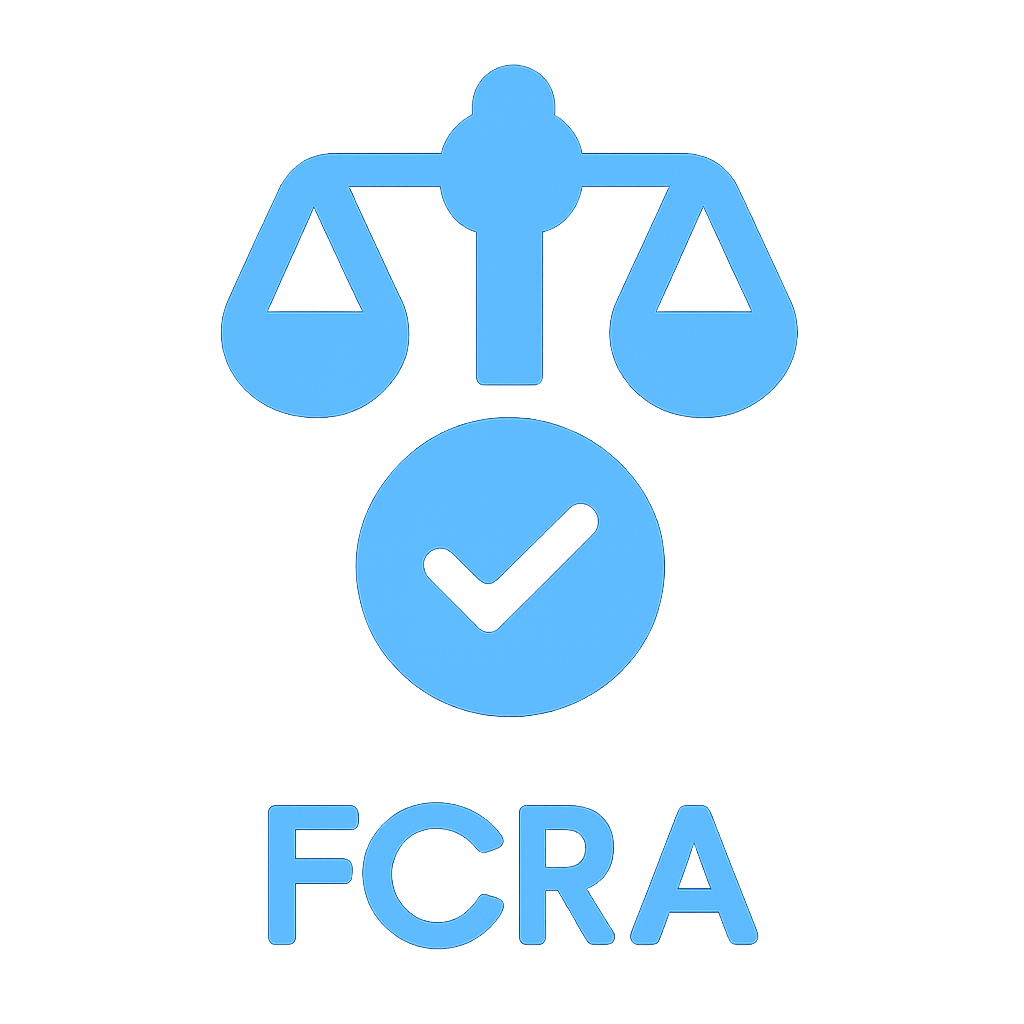Sue Checkr: Fight Inaccurate Background Checks
Checkr is a leading background check company used by employers nationwide. While their technology promises quick results, errors happen. The Fair Credit Reporting Act protects consumers by requiring companies like Checkr to ensure maximum accuracy before sharing reports.
Discovering errors on your Checkr background report can feel overwhelming, especially when these mistakes cost you a job or housing opportunity. Fortunately, federal law protects you, and you can sue Checkr for reporting inaccurate or misleading information. This guide walks you through why suing Checkr is important, common errors they make, and how to take effective legal action.
Why You Need to Sue Checkr? Understanding Your Rights Under the FCRA.
When an inaccurate background check from Checkr costs you a job opportunity or income, you may have a right to file a lawsuit to enforce your rights under the Fair Credit Reporting Act.
A lawsuit can be the most effective way to correct the inaccurate information, potentially leading to the restoration of your job offer. It also allows you to seek compensation for damages, including lost wages and emotional distress, holding these companies accountable for their error.
Ultimately, filing a lawsuit prevents the spread of false information from your Checkr report and protects your employment opportunities. Consulting with a background check lawyer is the first step to understanding your rights and determining if a lawsuit is the right option for you.
The Reasons You Can Sue Checkr: Common Checkr Violations
Mistaken Identity: Checkr can incorrectly link another person’s records to your identity due to data mismatches involving names, birthdates, or Social Security numbers.
Inclusion of Sealed or Expunged Records: By law, sealed or expunged criminal records should not appear on background checks. If Checkr reports them, they violate federal law.
Outdated or Incorrect Case Status. Listing a criminal case as pending or unresolved when it’s been dismissed or settled unfairly harms your chances with employers.
Failure to Correct Errors After Disputes. Even after you dispute an error, Checkr might ignore or mishandle your request, leaving damaging inaccuracies on your report.
How to Sue Checkr: A Step-By-Step Legal Roadmap
Step 1: Collect Crucial Evidence.
Gather a copy of your inaccurate Checkr report, any denial letters from employers or landlords, and documentation proving the mistakes.
Step 2: Consult an FCRA Attorney
An attorney specializing in consumer reporting laws will evaluate your case, identify violations, and develop the best legal strategy.
Step 4: File Your Lawsuit in Court
Your lawyer will prepare and file a complaint outlining Checkr’s legal violations and the damages you’ve suffered.
Step 5: Litigation and Settlement
Most Checkr lawsuits settle before trial because the evidence of error is often clear. If not, your attorney is prepared to fight for you in court.
Why Acting Quickly Is Crucial When Suing Checkr?
Filing a lawsuit against Checkr requires immediate action because of the strict legal deadlines involved. Under the Fair Credit Reporting Act, the statute of limitations is two years from when the violation is discovered.
The clock starts ticking the moment you are notified of the adverse action, such as a job offer being revoked. Waiting too long can result in the complete loss of your right to sue, regardless of the severity of the error on your Checkr report.
Acting quickly allows your FCRA attorney to gather evidence, build a strong case, and ensure that all legal deadlines are met, maximizing your chances of recovering lost wages, damages, and attorney's fees.
Why You Need an FCRA Attorney to Sue Checkr?
Navigating a lawsuit against Checkr can be a complex and challenging legal process. While the Fair Credit Reporting Act gives you powerful rights, effectively enforcing them requires the expertise of a specialized FCRA attorney.
These attorneys possess deep knowledge of federal consumer protection laws, know how to build a strong case against large corporations, and are skilled at negotiating settlements or representing you in court. They can help you properly document your case, gather critical evidence, and ensure all legal deadlines are met.
Without an attorney, it is easy to make procedural errors or miss important details that could jeopardize your case. An experienced FCRA attorney is your best resource for fighting an inaccurate Checkr report and recovering the compensation you deserve.
We Sue Checkr For False Background Checks!
Contact Us - Our Legal Support Is Free!
Other Questions About Checkr Consumer Lawsuits
Legal Grounds to Sue Checkr: FCRA Sections 1681e(b) and 1681i
Two of the most common legal claims against Checkr are based on the Fair Credit Reporting Act (FCRA) sections 1681e(b) and 1681i. To successfully sue Checkr, an attorney will often focus on these two statutes.
1681e(b) – The Duty of Maximum Possible Accuracy: This is a powerful provision of the FCRA that requires Checkr to follow "reasonable procedures to assure maximum possible accuracy of the information" in its reports. A violation of this section occurs when Checkr fails to prevent the inclusion of outdated, expunged, or incorrect criminal records that could have been easily verified.
1681i – The Duty to Reinvestigate: This section requires Checkr to conduct a proper reinvestigation of a report once a consumer has filed a dispute. If you filed a dispute about an inaccuracy on your report and Checkr failed to correct the error in a timely or accurate manner, it may be a violation of this section.
When an attorney files a lawsuit under these provisions, the goal is to correct the inaccurate report, recover financial damages, and hold the company accountable for its errors.
What Compensation Can You Get by Suing Checkr?
Under the Fair Credit Reporting Act (FCRA), consumers who were unjustly denied a job due to an inaccurate Checkr background check are entitled to compensation. A successful lawsuit against Checkr can result in several forms of financial recovery:
Lost Wages and Economic Damages: You can be compensated for the income you lost as a direct result of the inaccurate report, including the salary from the job you were denied.
Statutory Damages: The FCRA allows for statutory damages of up to $1,000 for each violation, even if you cannot prove a specific financial loss.
Punitive Damages: In cases where Checkr's violation of the law was particularly egregious, a court may award punitive damages to punish the company and deter similar conduct in the future.
Emotional Distress: You may also be compensated for the emotional distress and harm caused by the denial of a job opportunity.
Attorney's Fees and Costs: The FCRA includes a fee-shifting provision, which means that Checkr is responsible for paying your legal fees and court costs if you win your case.




















